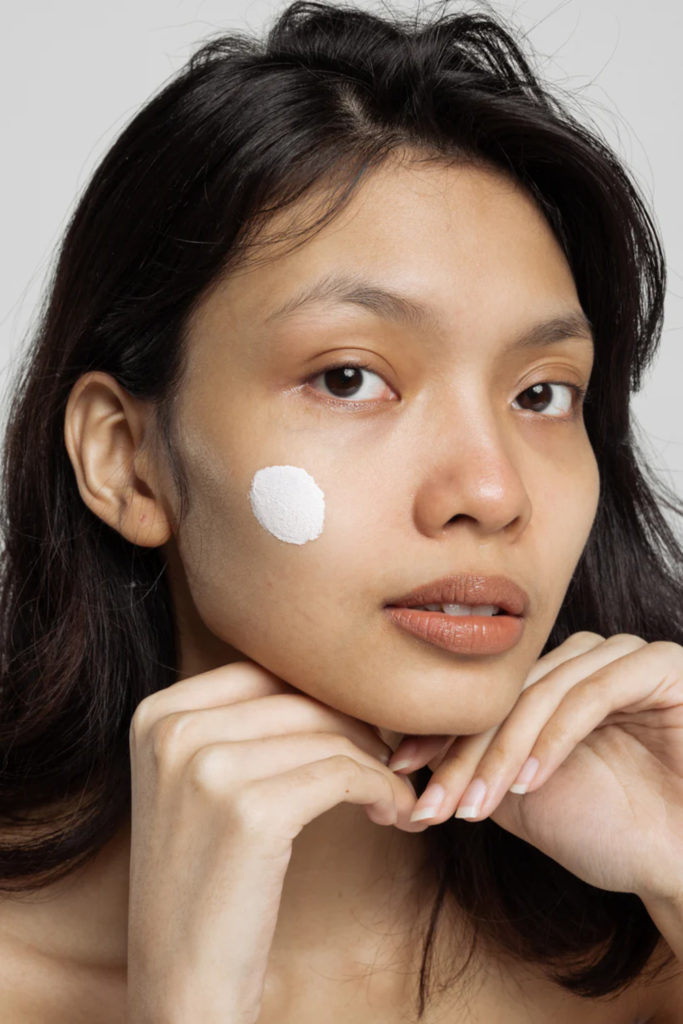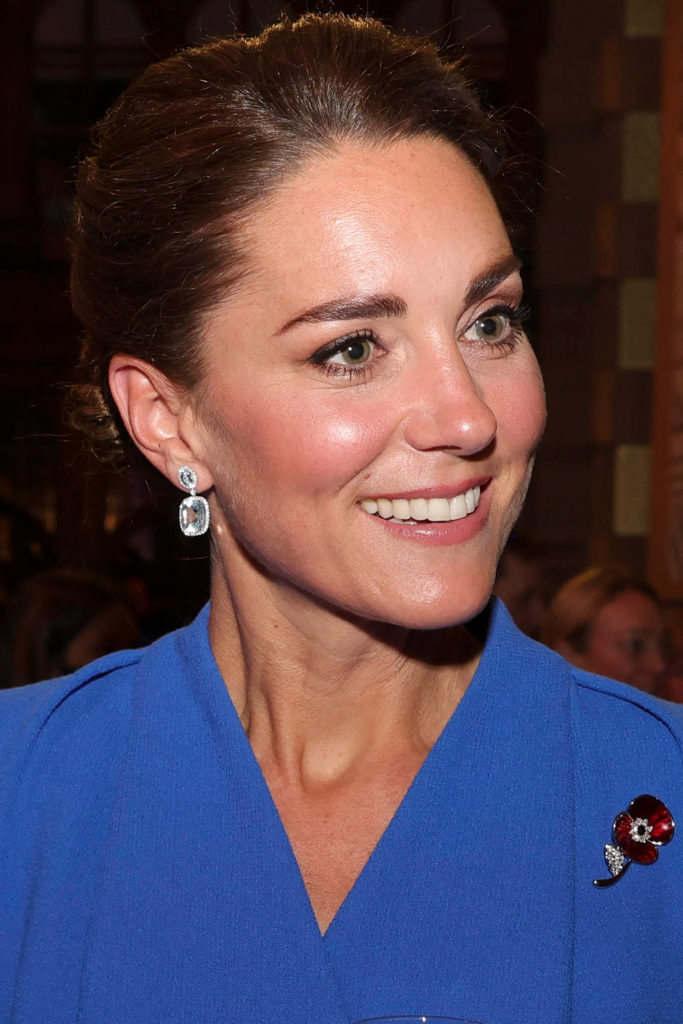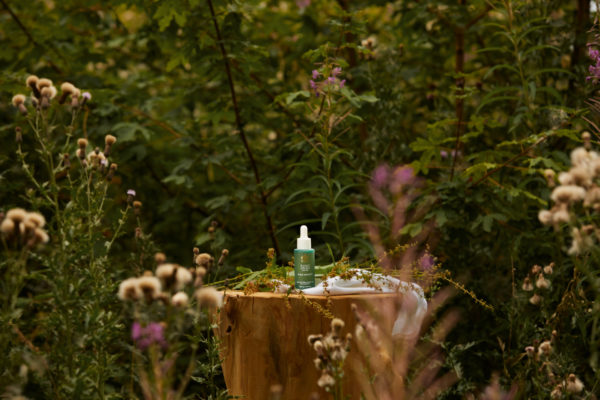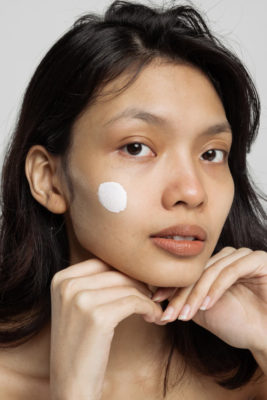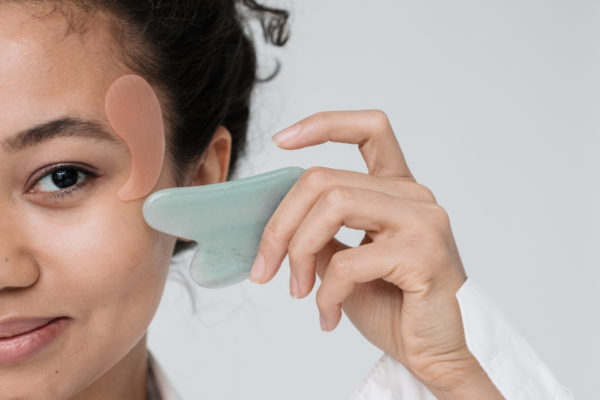How To Build The Perfect Summer Skincare Routine
By
10 months ago
Your seasonal skincare guide

Summer skin getting you down? Your routine should shift and change with the seasons, giving your skin the added protection or breathing room it needs to flourish (whatever the weather). If you’re not sure where to start when it comes to warmer months, fear not; we’ve asked the experts what steps and ingredients we should consider when it comes to crafting the perfect summer skincare routine.
How To Build The Perfect Summer Skincare Routine

Victor Vazquez, Unsplash
What Steps Should Be Added To Our Routine?
1. Cleanse
As with all good skincare routines, you should kick things off with a good cleanser. ‘The first step in your skincare regimen should be to cleanse your face with an appropriate cleanser for your skin type,’ says leading aesthetic doctor and Co-Founder of The Ardour Clinic, Dr Paris Acharya. ‘I recommend double cleansing to ensure a truly effective clean. For ingredients to properly absorb into your skin as you continue on with your regimen, you need to ensure that your skin is free of oil and dirt. Spending just a couple of minutes cleansing your face will help reduce oily build-up and acne breakouts. This is particularly important at this time of year when people are applying sun lotion and spending more time outside exposed to external factors such as pollution, pollen and dust.’
So what kind of cleanser should we try when it gets warmer? ‘In summer months, I recommend using a light, creamy cleanser as it will allow your skin to feel fresh without stripping it of all its natural oils and moisture,’ suggests Dr Acharya. ‘If you’re someone that struggles with seasonal breakouts as we transition to warmer months, it may mean that your current skincare products are too heavy for summer – summertime generally means lighter beauty.’
2. Exfoliate
Winter isn’t the only season responsible for an influx of dry skin; many of us will experience dry skin (and flaky skin if you’re recovering from sunburn) throughout summer. As Dr Acharya recommends, ‘using a gentle exfoliator regularly is vital when moving into a new season to eliminate dead skin cells allowing new, fresh skin to blossom. If you are experiencing constant dry, dull skin, the answer is to exfoliate. I recommend using a daily exfoliator once a day that is specially formulated for consistent, regular use as this will keep skin smooth, clear in a gentle manner.’
3. Vitamin C
This water-soluble vitamin is typically found in citrus, fruits and vegetables, and is a crucial micronutrient to help our bodies function properly. In skincare, vitamin C acts as a powerful antioxidant and skin brightener, and can help even out hyperpigmentation caused by sun damage – making it an ideal ingredient to have in your skincare arsenal.
‘No matter your skin type, always apply vitamin C – also known as ascorbic acid – to your skin in the morning,’ recommends Dr Acharya. ‘It is a fantastic addition to a skincare regimen as it is a powerful antioxidant and one of the few skincare ingredients that has been proven to help in the battle against skin ageing.
‘Vitamin C is perfect for summer skincare as it fights against free radicals such as UV rays and can improve pigmentation caused by sun damage and scarring. It also encourages collagen production and helps protect skin against damage from the environment.’

Apple Bautista, Unsplash
4. Hydrate
You know what they say: stay hydrated, especially during summer. ‘Moisturising is one of the most important steps in a skincare routine, especially during the summer seasons,’ says Dr Acharya. ‘Often, our skin struggles to deal with the air and temperature change in summer, which can cause it to become dry and malnourished. So, I recommend a light yet nourishing moisturiser that will gently hydrate your skin. Remember to always apply your moisturiser to your neck as well as your face to prevent ageing lines and wrinkles in all areas. At night, I recommend a slightly heavier moisturiser to ensure constant hydration throughout the night.’
5. SPF
While we should really be using SPF throughout the year, summer is the time it becomes as essential part of our skincare routine. As Dr Acharya notes: ‘SPF is one of the most important items in your beauty regime; it is vital for healthy summer skin. Apply your SPF to the face and neck in the morning under makeup and if wearing on your barefaced days, it is always recommended to reapply throughout the day. I always recommend using a minimum of SPF 30 to ensure effective protection throughout the day.’
6. Eye Cream
‘The skin around your eyes is extremely delicate so it is vital that we look after our eyes properly in the summer months where the sun is harsh on our skin,’ explains Dr Acharya. ‘So, it’s worth applying a gentle, brightening eye cream to create fresh-looking eyes for the warmer months ahead.
‘Always apply your eye cream with your fourth finger (ring finger), as this is the most delicate finger, and gently pat the cream in a circular motion around the eye, covering the eyelid and the under eye. This will ensure that the entire area is covered while also encouraging an eye lift with the application motion.’

(c) Henry Gillis, Unsplash
7. Lips
And now for the final stage of your summer skincare routine: lips. ‘The last stage when it comes to creating a seamless summer skincare look is to take care of the lips,’ says Dr Acharya. ‘The lips are such an important part of the face and yet they often get forgotten when it comes to skincare. Many people forget to nourish their lips with a hydrating balm or serum and this can lead to dry, flaky lips.’
Which Ingredients Should We Look Out For?
Vitamin C
The Lowdown: Vitamin C is a powerful antioxidant that protects your skin from environmental factors and premature ageing
What it does: ‘Vitamin C (also known as ascorbic acid) is a hero product that can be used by most skin types in the morning,’ says Dr Acharya. ‘It is a fantastic addition to a skincare regimen due to powerful antioxidant activity and one of the few skincare ingredients that has been proven to help in the battle against skin ageing. Vitamin C is a terrific skin brightener that can help manage discolouration alongside other ingredients.
‘It is perfect for summer skincare as it is a powerful antioxidant that fights against free radicals such as UV rays and can improve pigmentation caused by sun damage and acne scarring. It also encourages collagen production and helps protect skin against environmental stress.’
Hyaluronic Acid
The Lowdown: This skincare ingredient provides instant hydration and moisture to malnourished skin
What it does: ‘Hyaluronic Acid is perfect for treating dehydrated skin as it provides instant hydration, and traps in the skin’s natural moisture and water levels to provide (and retain) deep hydration,’ explains Dr Acharya. ‘It is also a great ingredient for reducing lines and wrinkles as it helps the skin appear more plumped and firmer giving a gorgeous glow.’

Christopher Sardegna, Unsplash
Vitamin B3
The Lowdown: Another ingredient that helps create brighter skin, vitamin B3 is perfect for evening out your complexion
What it does: ‘Vitamin B3 is a powerful ingredient for those with skin discolouration as well as dull skin,’ says Dr Acharya. ‘It helps to reduce trans-epidermal water loss and improve barrier function, which is critical for healthy, bright skin. The vitamin works to prevent water loss and therefore retains your skin’s moisture.’
Retinol
The Lowdown: A powerful vitamin derivative that clears acne by helping cells regenerate
What it does: ‘Retinol is a derivative of Vitamin A which plays an important role in helping cells regenerate and refresh,’ explains Dr Acharya. ‘This therefore means that retinol can help create new, younger looking skin. It is also the perfect ingredient for those with acne and breakout prone skin; retinol promotes a clear complexion and an even skin tone due to the cell turnover because as cells are regenerated, and oil production controlled your pores will be less likely to become blocked.
‘Although retinol is highly effective, I recommend using a powerful night time treatment on cleansed skin. If you use a retinol during the day, you will be exposing it to UV light which decreases the positive outcomes of the retinol. It’s very important to apply plenty of SPF when using retinol.’
Featured image: Antony, Unsplash





